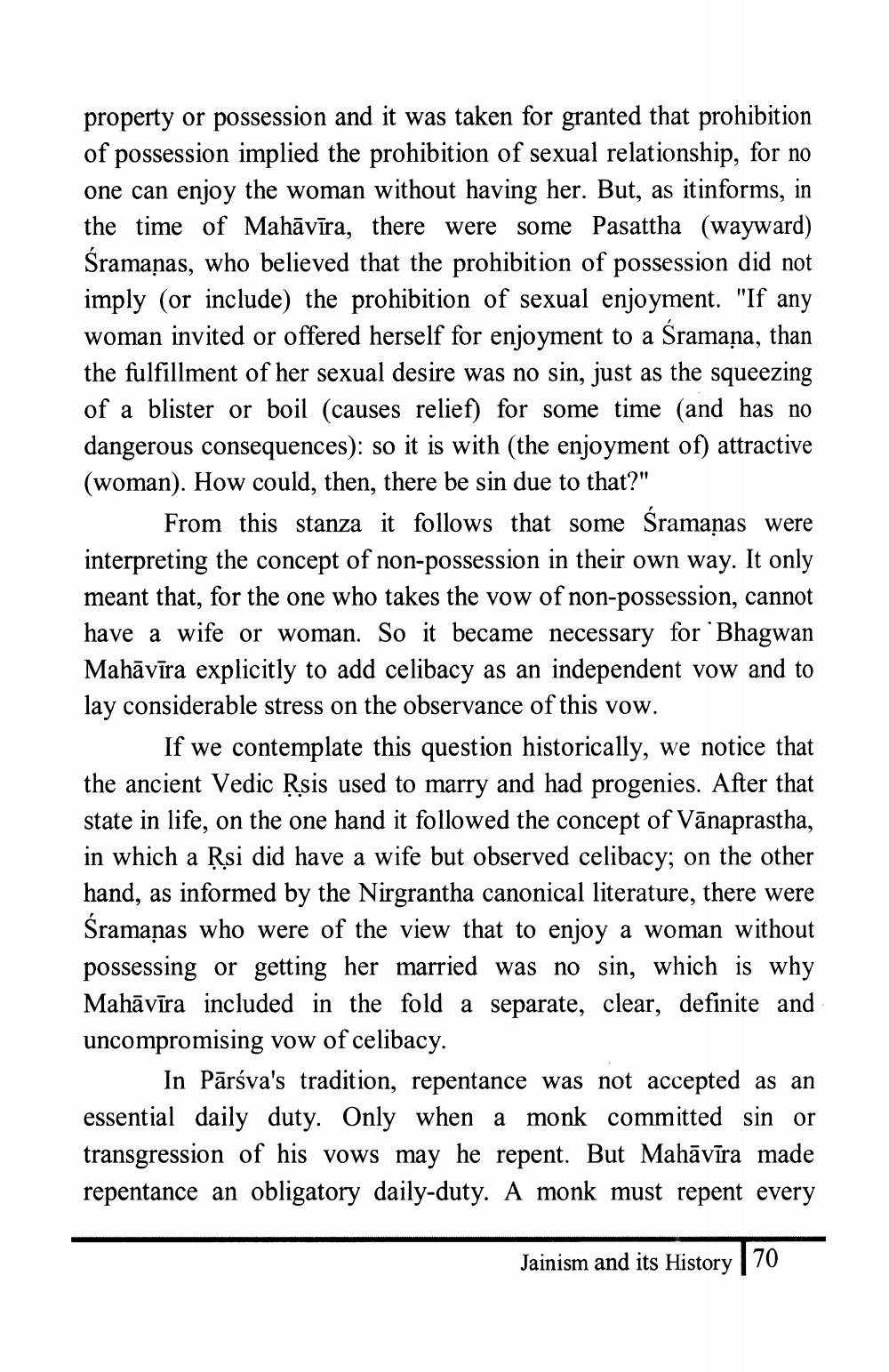________________
property or possession and it was taken for granted that prohibition of possession implied the prohibition of sexual relationship, for no one can enjoy the woman without having her. But, as itinforms, in the time of Mahāvīra, there were some Pasattha (wayward) Śramanas, who believed that the prohibition of possession did not imply (or include) the prohibition of sexual enjoyment. "If any woman invited or offered herself for enjoyment to a Śramaṇa, than the fulfillment of her sexual desire was no sin, just as the squeezing of a blister or boil (causes relief) for some time (and has no dangerous consequences): so it is with (the enjoyment of) attractive (woman). How could, then, there be sin due to that?"
From this stanza it follows that some Śramaņas were interpreting the concept of non-possession in their own way. It only meant that, for the one who takes the vow of non-possession, cannot have a wife or woman. So it became necessary for Bhagwan Mahāvīra explicitly to add celibacy as an independent vow and to lay considerable stress on the observance of this vow.
If we contemplate this question historically, we notice that the ancient Vedic Rsis used to marry and had progenies. After that state in life, on the one hand it followed the concept of Vanaprastha, in which a Ṛsi did have a wife but observed celibacy; on the other hand, as informed by the Nirgrantha canonical literature, there were Śramaņas who were of the view that to enjoy a woman without possessing or getting her married was no sin, which is why Mahāvīra included in the fold a separate, clear, definite and uncompromising vow of celibacy.
In Pārsva's tradition, repentance was not accepted as an essential daily duty. Only when a monk committed sin or transgression of his vows may he repent. But Mahāvīra made repentance an obligatory daily-duty. A monk must repent every
Jainism and its History | 70




